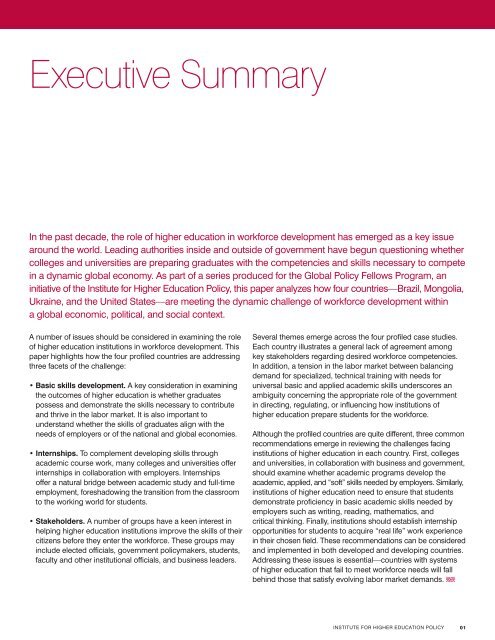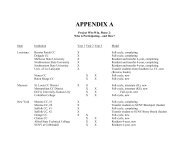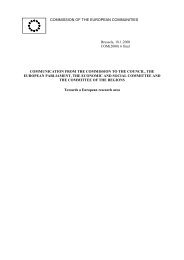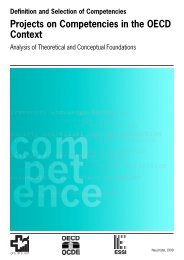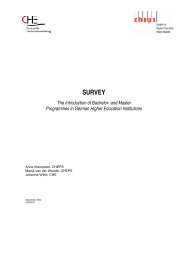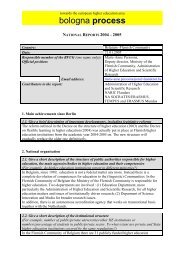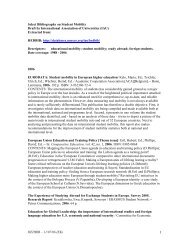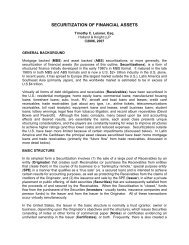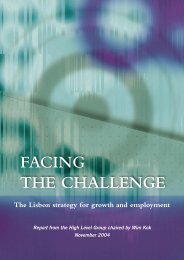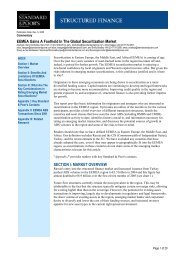Educational Policies for Integrating College Competencies and ...
Educational Policies for Integrating College Competencies and ...
Educational Policies for Integrating College Competencies and ...
You also want an ePaper? Increase the reach of your titles
YUMPU automatically turns print PDFs into web optimized ePapers that Google loves.
Executive SummaryIn the past decade, the role of higher education in work<strong>for</strong>ce development has emerged as a key issuearound the world. Leading authorities inside <strong>and</strong> outside of government have begun questioning whethercolleges <strong>and</strong> universities are preparing graduates with the competencies <strong>and</strong> skills necessary to competein a dynamic global economy. As part of a series produced <strong>for</strong> the Global Policy Fellows Program, aninitiative of the Institute <strong>for</strong> Higher Education Policy, this paper analyzes how four countries—Brazil, Mongolia,Ukraine, <strong>and</strong> the United States—are meeting the dynamic challenge of work<strong>for</strong>ce development withina global economic, political, <strong>and</strong> social context.A number of issues should be considered in examining the roleof higher education institutions in work<strong>for</strong>ce development. Thispaper highlights how the four profiled countries are addressingthree facets of the challenge:• Basic skills development. A key consideration in examiningthe outcomes of higher education is whether graduatespossess <strong>and</strong> demonstrate the skills necessary to contribute<strong>and</strong> thrive in the labor market. It is also important tounderst<strong>and</strong> whether the skills of graduates align with theneeds of employers or of the national <strong>and</strong> global economies.• Internships. To complement developing skills throughacademic course work, many colleges <strong>and</strong> universities offerinternships in collaboration with employers. Internshipsoffer a natural bridge between academic study <strong>and</strong> full-timeemployment, <strong>for</strong>eshadowing the transition from the classroomto the working world <strong>for</strong> students.• Stakeholders. A number of groups have a keen interest inhelping higher education institutions improve the skills of theircitizens be<strong>for</strong>e they enter the work<strong>for</strong>ce. These groups mayinclude elected officials, government policymakers, students,faculty <strong>and</strong> other institutional officials, <strong>and</strong> business leaders.Several themes emerge across the four profiled case studies.Each country illustrates a general lack of agreement amongkey stakeholders regarding desired work<strong>for</strong>ce competencies.In addition, a tension in the labor market between balancingdem<strong>and</strong> <strong>for</strong> specialized, technical training with needs <strong>for</strong>universal basic <strong>and</strong> applied academic skills underscores anambiguity concerning the appropriate role of the governmentin directing, regulating, or influencing how institutions ofhigher education prepare students <strong>for</strong> the work<strong>for</strong>ce.Although the profiled countries are quite different, three commonrecommendations emerge in reviewing the challenges facinginstitutions of higher education in each country. First, colleges<strong>and</strong> universities, in collaboration with business <strong>and</strong> government,should examine whether academic programs develop theacademic, applied, <strong>and</strong> “soft” skills needed by employers. Similarly,institutions of higher education need to ensure that studentsdemonstrate proficiency in basic academic skills needed byemployers such as writing, reading, mathematics, <strong>and</strong>critical thinking. Finally, institutions should establish internshipopportunities <strong>for</strong> students to acquire “real life” work experiencein their chosen field. These recommendations can be considered<strong>and</strong> implemented in both developed <strong>and</strong> developing countries.Addressing these issues is essential—countries with systemsof higher education that fail to meet work<strong>for</strong>ce needs will fallbehind those that satisfy evolving labor market dem<strong>and</strong>s.INSTITUTE FOR HIGHER EDUCATION POLICY01


